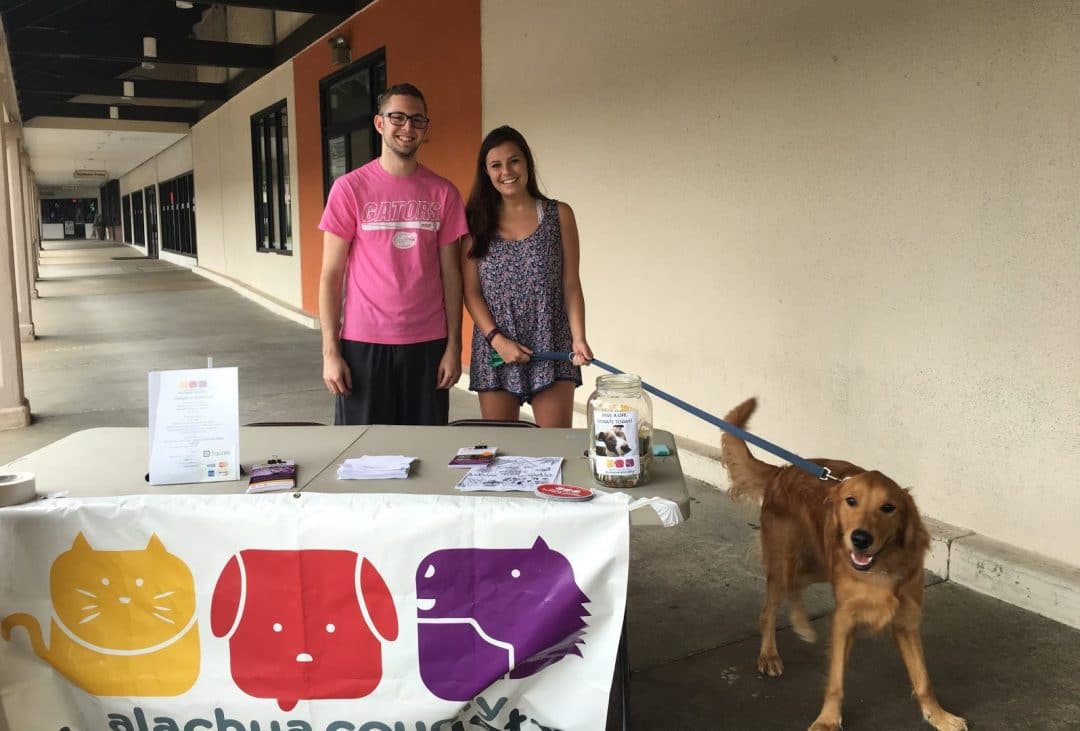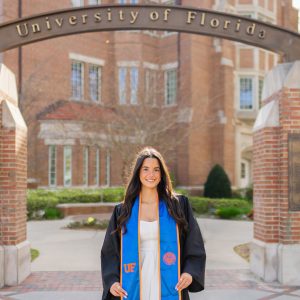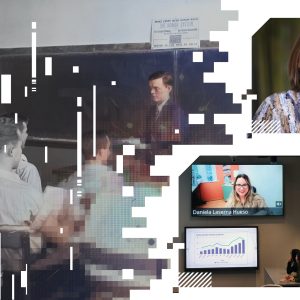Marketing class’s sales pitch results in more than $50,000
It was the final days of Professor Dennis DiPasquale’s Sales Management course, and the class’s 16 teams were ready to present on their semester-long fundraising projects.
Grace Everitt and her “Wonder Women” team were up first. She was confident in her team’s work, but didn’t know how well her group performed relative to the others.
Then, the Wonder Women revealed how much money they raised.
“I knew once I saw the look on their faces,” Everitt said. “It was a mix of hatred and dropped jaws.”
That’s because the Wonder Women had raised a class-best $9,537 for the Alachua County Humane Society. In total, DiPasquale’s Spring 2016 class raised more than $50,000—assisting area charities and providing students an up close and personal experience in selling and sales management.
The fundraising project has been a staple in Sales Management for years, but past classes had never approached what the Spring 2016 class accomplished. The Fall 2015 class, for example, raised just under $20,000 with 12 teams participating.
The Sales Management course has three major components—the fundraising project, a book presentation, and a combination of class participation, attendance, exams, quizzes and other factors. But the fundraising project counts the most toward a student’s final grade.
That has led some teams, in past years, to become too aggressive in seeking cash contributions, DiPasquale said. Therefore, DiPasquale also takes into account a client evaluation from the charity organization, and a group’s ability to secure non-cash contributions.
Wonder Women’s success is a perfect example of this new approach. The team raised $1,550 in cash, but secured $2,708 in in-kind gifts (free pet grooming sessions, donated newspapers for cat litter and puppy training pads, etc.), and $5,279 in other gifts (auction items and sponsorships).
Wonder Women’s fundraising progress was similar to most. It was painfully slow at the outset, but improved dramatically once the group’s members learned the fundraising ropes. That, and the ability to handle rejection properly, was instrumental to the team’s success.
“The worse they can say is ‘no,’” said Everitt, 25. “You don’t take it personally, and you move on.”
But even negative responses can lead to positive outcomes—if the fundraising team is organized, said Margot DeConna, Director of Development at the Alachua County Humane Society.
“People are generally good and want to help,” said DeConna (BS ’07, MBA ’13), who worked with the Wonder Women team, “so most of the time a ‘no’ is a ‘not right now.’ They did a great job of pounding the pavement and not being afraid to ask.”
DiPasquale runs his class like a business; he’s the CEO and the students are his employees. It can be a jolting experience for some.
“I was so determined to dislike him,” Everitt said. “He doesn’t take it easy on students. He definitely challenges you, and you have to work for it.”
That DiPasquale is providing sales expertise to students is interesting because he doesn’t have any professional sales experience himself. He was a computer science major at Rowan University (N.J.), and began his career in information technology. He later worked in brand development, and ran his own strategic communications firm for eight years.
DiPasquale was teaching Principles of Marketing at Warrington when he was approached about taking over Sales Management—a course he said has value regardless of a student’s career track.
“Even if you’re not going into sales, you need to learn to sell,” DiPasquale said. “When you go in for an interview, you’re selling yourself. If you’re an engineer, you need to sell your idea. There’s a confidence and emotional intelligence that comes with sales that is extremely important.”
“Some people have the gift to sell naturally, but it’s absolutely something that can be taught,” Everitt said. “In terms of an immediate application of what you’ve learned, I think it’s the most useful class I’ve ever taken at UF.”




